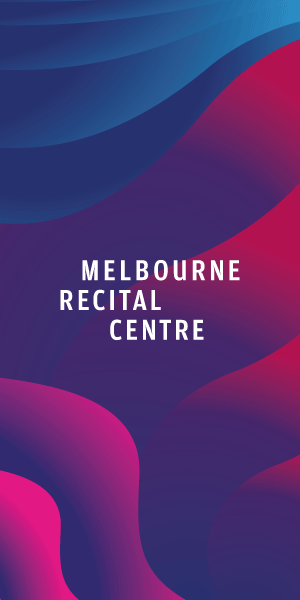The festival putting children’s emotional resilience and wellbeing first
As a response to the lasting impact of the pandemic on children’s mental health and wellbeing, The Big Anxiety Festival’s Children’s Sensorium program is confronting the issue head on.
The Melbourne Naarm cultural festival is a partnership between RMIT University and UNSW Sydney, and is being collaboratively produced by RMIT Culture and Yarra Ranges Council.
While the Naarm festival officially starts on September 21 with a long list of events designed to promote curiosity, insight and action through the sharing of lived experiences, the Children’s Sensorium started on August 19 in RMIT’s Design Hub Gallery.
Children’s Sensorium curator Grace McQuilten has seen the impact of the pandemic on children first-hand through her own daughter’s experience, and she said while the issue was becoming more recognised, many families were still suffering.
“There is some pretty strong evidence showing the significant impacts of lockdown, school closures and a menacing virus circulating on young children and their sense of wellbeing and safety in the world,” Ms McQuilten said.
“It probably manifests for a lot of families in behavioural issues from their children because mental health issues aren’t always picked up or obvious.”
Reflecting on psychologists’ and support services’ long waiting lists as motivation for having a children-focused program at the festival, Ms McQuilten said the program was a positive and upbeat experience for the children.
“We have worked with a group of contemporary artists to create a space for children where they can connect with their senses, explore their feelings in a safe environment and learn some basic strategies around mindfulness, being in the body, deep breathing and regulating their emotions,” she said.
“Art in itself, and of itself, is a fantastic way for kids to process complex feelings and experiences.”
Within the Sensorium there will be things for kids to touch, smell, look at and listen to, all of which are there to encourage them to be in the present moment.
Artistic direction was also received from Boonwurrung elder N’arweet Carolyn Briggs, through a soundscape with audio from nature, water and stories, and teaches kids how connecting to country is an important aspect of wellbeing.
Kids have also been involved through the production of the program, with a co-design aspect visible in displays of their artwork.
The Children’s Sensorium is particularly suited on children between the ages of four and 11, but the positive impact of art on mental health through this sensory experience can also be beneficial for older kids and adults.
Using creative responses that stretch beyond the medical or clinical model, the festival’s co-directors Scientia Professor Jill Bennett (UNSW Sydney) and Professor Renata Kokanović (RMIT University) aim to reposition mental health as a collective community-based cultural responsibility.
According to Scientia Professor Bennett, “arts are the best means we have for sharing complex experiences.”
“[Arts] is a pathway that can show us what we may not know about ourselves and others, and it also shines a light on relationships and social settings that help or hinder mental health,” she said.
“We have seen evidence that the arts can make real and meaningful transformations and change.”
The Big Anxiety will run until October 15 and coincides with National Mental Health Month. •

Affordable housing proposed on council land







 Download the Latest Edition
Download the Latest Edition